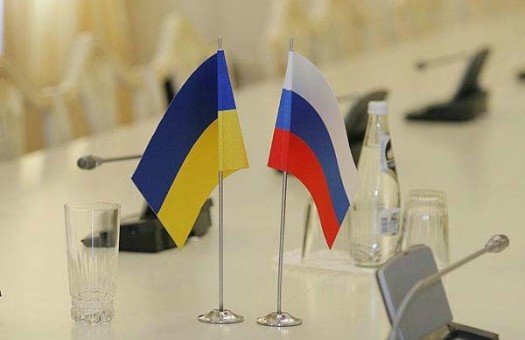
The recent Iranian deal with the Western P5+1 powers, if conducive, was already a severing in Russia’s moderate bid to gather all who are around it as allies; and now, this hit at its western border is indeed a red line that should not have been crossed.
For the last three weeks, Kiev, the capital city of Ukraine, has been filled with roiling street protests after President Viktor Yanukovych renounced the EU Association deal in favor of closer economic ties with Russia by joining the Customs Union of Russia. The Ukrainian public seems to be divided in the choice between Europe and Russia, but the big picture may be more complicated than the obvious; is it simply just Ukraine’s internal matter or is it the tug of war between the Russia and the West, between whom Ukraine has become a mere bait?
The end of the Cold War, with the symbolic collapse of the Berlin Wall in 1989, the reunification of Germany and the subsequent dismembering of the Soviet satellite states from the Soviet Union, did push Russia into a passive mode in world politics, but it was never inert. Russia was still a Veto state, one with nuclear capability and still the most advanced military power of the East. One should wonder that if it took around 5o years of indirect warfare and intense espionage after the Second World War for the US to pull its opponent Superpower from its height, to become the sole Superpower of the world; then could Russia be taking these later two decades to bring down its opponent superpower from its height too?
And one should wonder if it was easier for one superpower to defeat one other; or is the US in a more vulnerable position today, with many regional powers everywhere in the world, asserting themselves strongly, with advancing technology and better awareness of the world around them every day? Some political scientists had predicted that the US will not remain the sole superpower for more than a decade or two after the Cold War had ended; they presented the idea that the world would soon be divided between strong regional powers with constantly changing parameters of power. Perhaps the US had taken heed of such predictions, and perhaps its war for power and global acknowledgement had never slacked, and perhaps the cold war for resources, alliances and hegemony had never stopped but only taken different formations.
In this framework, Russia had made several treaties with its former member states and with other Asian states that may ensure regional cooperation as opposed to cooperation with the West. The Shanghai Cooperation Organization and the BRIC are a few that aim to unite China, India and Russia under a common umbrella; the CIS and CSTO aim for a common economy and strategy for the former Soviet members; and the Customs Union is a treaty organization between Belarus, Kazakhstan and Russia, aiming at a single economy for its member states, which are again previous Russian states. Though Russia is also a member of several other international treaties with Europe, US and the UN, but its dream of becoming a greater regional power is evident from the treaties it has made with immediate neighbors.
Ukraine, one of the former Soviet Union states, can rightly be considered Russia itself, as its capital city Kiev, historically known as KievanRus, was the origin city of the Russian people when the Varangians first migrated and settled there in the 9th century, and is accepted as the first historically recorded East Slavic state. Thus, for centuries, Ukraine has been a part of or under the influence of Russia, until it gained independence in 1991, when the Soviet Union was dissolved.
After its independence, Ukraine had to suffer a lot economically, as it had to break away from the large Sovietplanned-economy to an unpredictable market-economy; from being the second biggest economy in the USSR, it has been in constant recessions and comebacks for the last two decades. In recent years, Ukraine has tried to open more avenues on trade with its Western friends, which was evident in the Yalta conference held in September this year, where representatives of many Western powers were invited to offer Ukraine an ‘association and free-trade agreements with the EU’. The Russian representative to the conference, Sergey Glazyev, in his angry speech, warned that if Ukraine wants to have free trade with Europe, there will be no trade with Russia.
Viktor Yanukovich, Ukraine’s president, has faced most severe pressure in these months, as the public seems to be divided between pro-Russia and pro-EU inclinations. But even if Yanukovich wanted to sign the EU Association Agreement, it would not at all be feasible; rather, it would prove to be an economic suicide for Ukraine, as Russia is still Ukraine’s largest trade partner, and Ukraine depends largely upon Russia for its energy supplies.
At this stage, uprooting Ukraine from Russia, with nothing but raw promises, seems more of a political stunt from the EU than any serious effort to bring Ukraine out of its economic instability. Can a Europe, itself stranded in economic turmoil and austerity, give enough business and energy to Ukraine, enough to enable it to forgo Russia, its major provider of both? The promises of the Associations may look handsome, but as yet, they are just promises, and they tend to buy the Ukrainian people more with the usual rhetoric of human rights, freedom, democracy and transparency. Perhaps this may be a political stunt after all, to break Russia away from Iran on the south and from Ukraine at the west.








